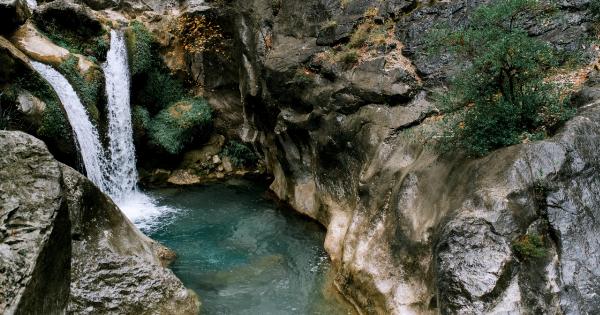Sleep is an essential aspect of our overall well-being, affecting various physiological processes in the body, including kidney health. Kidney stones are a common condition that can cause significant discomfort and pain if left untreated.
Recent research suggests that our sleeping habits might play a role in the formation and prevention of kidney stones. In this article, we will explore the connection between sleep and kidney stones and understand how certain sleeping habits can influence their development.
What are Kidney Stones?
Kidney stones, medically known as nephrolithiasis, are hard deposits that form in the kidneys. They are made up of mineral and acid salts, such as calcium, oxalate, and uric acid, which accumulate and crystallize over time.
Kidney stones can vary in size, ranging from as small as a grain of sand to as large as a marble.
The Role of Sleep in Kidney Health
Sleep is crucial for the normal functioning of our body as it allows for essential processes like tissue repair, hormone regulation, and waste removal.
Adequate sleep helps maintain a healthy balance of various minerals and electrolytes, preventing their build-up in the kidneys.
Disrupted sleep patterns or chronic sleep deprivation can disturb these processes, leading to imbalances that may contribute to the formation of kidney stones. Let’s explore some factors related to sleep that can impact kidney stone formation:.
1. Inadequate Hydration
During sleep, our bodies often experience prolonged periods without water intake. This can lead to dehydration, which is considered a risk factor for kidney stone development.
Insufficient hydration reduces urine volume and increases the concentration of minerals and salts in the urine, making it easier for kidney stones to form.
2. Sleep Apnea
Sleep apnea is a sleep disorder characterized by repeated interruptions in breathing during sleep. Studies have found a correlation between sleep apnea and an increased risk of developing kidney stones.
The mechanism behind this association is thought to be related to changes in oxygen levels and acid-base balance during sleep, which can contribute to the formation of stones.
3. Obstructive Sleep Apnea (OSA)
Obstructive sleep apnea (OSA) can further aggravate the risk of kidney stone formation.
OSA causes repetitive partial or complete blockage of the upper airway during sleep, resulting in reduced oxygen levels and increased acidity in the blood and kidneys. These abnormalities can promote the crystallization and deposition of substances that lead to stone formation.
4. Disrupted Circadian Rhythm
Irregular sleeping patterns and disrupted circadian rhythms can impact kidney function and contribute to the formation of kidney stones.
Our body’s internal clock influences various physiological processes, including urine production and excretion. Disturbances in this rhythm can disrupt the clearance of minerals and wastes from the kidneys, increasing the risk of stone formation.
5. Restless Legs Syndrome (RLS)
Restless Legs Syndrome (RLS) is a condition characterized by an uncontrollable urge to move the legs, often accompanied by uncomfortable sensations. This neurological disorder can disrupt sleep and lead to chronic sleep deprivation.
RLS has been associated with an increased risk of kidney stone formation, likely due to the sleep disruption and various physiological changes it causes.
6. Impact of Sleep Position
Believe it or not, the position in which you sleep may affect your susceptibility to kidney stones. Limited research suggests that sleeping in the prone position or lying on your stomach might increase the likelihood of developing kidney stones.
This positional effect is attributed to the altered urine flow dynamics and increased pressure on the kidneys.
7. Sleep Quality and Pain Perception
Poor sleep quality can influence the perception of pain, including kidney stone pain, which is known to be excruciating.
Sleep deprivation or disrupted sleep patterns can lower the pain threshold, potentially exacerbating the discomfort associated with passing kidney stones.
Preventive Measures and Healthy Sleeping Habits
While the impact of sleep on kidney stones is an emerging field of research, adopting healthy sleeping habits may help reduce the risk of stone formation and promote overall kidney health. Here are some preventive measures and habits to consider:.
1. Stay Hydrated
Ensure adequate hydration throughout the day and especially before sleeping. Drinking plenty of water helps maintain higher urine volume, reducing the concentration of minerals and salts that contribute to kidney stone formation.
2. Establish a Regular Sleep Routine
Try to maintain a consistent sleep schedule, going to bed and waking up at the same time every day. This helps regulate your body’s internal clock and promotes a healthy circadian rhythm.
3. Create a Restful Sleep Environment
Make your bedroom conducive to a good night’s sleep. Keep the room dark, quiet, and at a comfortable temperature. Consider using earplugs, sleep masks, or white noise machines if necessary.
4. Address Sleep Apnea or RLS
If you suspect you have sleep apnea or Restless Legs Syndrome, consult a healthcare professional for diagnosis and appropriate treatment options. Treating these sleep disorders can potentially reduce the risk of kidney stone formation.
5. Sleep Position Awareness
While the link between sleep position and kidney stones is not yet fully understood, consider sleeping on your back or side rather than on your stomach. This may help alleviate any pressure or disruption to urine flow.
6. Optimize Sleep Quality
Practice good sleep hygiene by establishing a bedtime routine, limiting screen time before bed, and avoiding stimulating substances like caffeine or nicotine close to bedtime.
Creating a restful sleep environment can improve the quality and duration of your sleep, ensuring your body gets the rest it needs.
In Conclusion
Although there is still much to learn about the relationship between sleep and kidney stones, evidence suggests that our sleeping habits do play a role in their formation and prevention.
By maintaining healthy sleeping habits and addressing any sleep disorders, we can potentially decrease the risk of kidney stone development and promote better kidney health overall.































